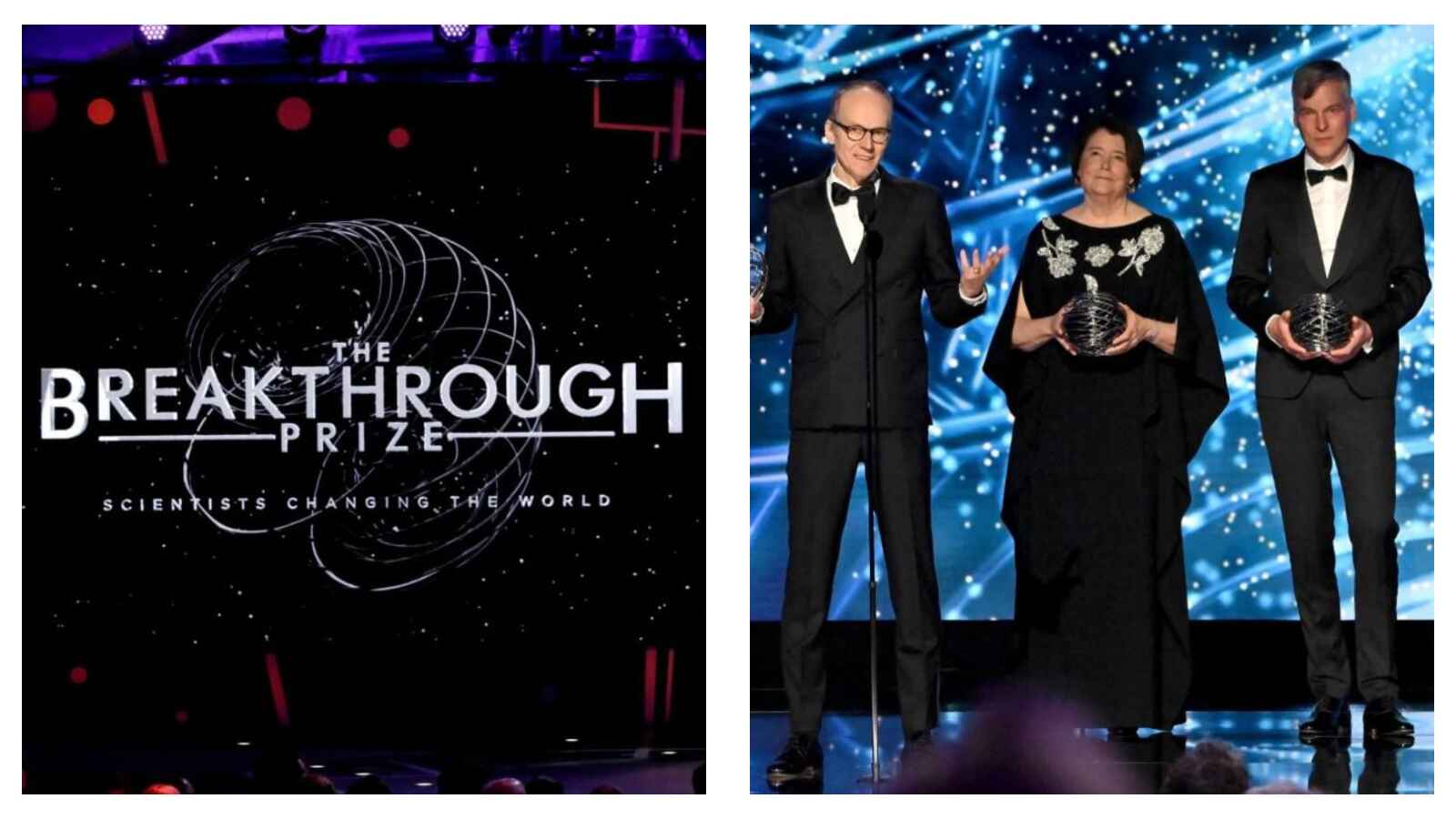By Ciara Mina
Popularly known as the ‘Oscars of Science’, the Breakthrough Prizes honour scientists for their contributions to life sciences, fundamental physics, and mathematics.
The 2025 winners were recently announced at a ceremony in Los Angeles.
Life Sciences award salutes gene-editing techniques
The Breakthrough Prize in Life Sciences went to David R. Liu for creating two powerful and accessible gene-editing methods.
Liu’s techniques fix the DNA mutations that give people genetic illnesses while resulting in fewer undesirable effects as they do not necessitate severing of the DNA double helix.
Daniel J. Drucker, Joel Habener, Jens Juul Holst, Lotte Bjerre Knudsen, and Svetlana Mojsov were also honoured for their discovery of the glucagon-like peptide 1 (GLP-1), which has applications in blood-sugar regulation, multiple sclerosis research, and gene-editing technology.
Additionally, Alberto Ascherio and Stephen L. Hauser have revolutionised the way that multiple sclerosis (MS) is understood and treated.
Hauser’s achievements included challenging the scientific consensus regarding the mechanism of MS and establishing that the immune system’s B cells are the main cause of nerve cell damage.
B cell–depleting treatments, which have transformed the way the disease is treated today, were developed and tested thanks in large part to his efforts.
READ MORE: Researchers in Portugal develop algae-based products to treat Covid-19

Fundamental Physics prize shared by four CERN groups
Thousands of researchers from over 70 nations, representing four experimental groups at CERN’s Large Hadron Collider (LHC) – ATLAS, CMS, ALICE, and LHCb – have been given the Breakthrough Prize in Fundamental Physics.
The four experiments are known for their ability to accurately test the Standard Model, the current theory of particle physics, as well as alternative theories that might describe physics beyond it.
To honour 13,508 co-authors of articles based on LHC Run-2 data published between 2015 and July 15, 2024, the $3 million prize is divided among ATLAS ($1 million), CMS ($1 million), ALICE ($500,000), and LHCb ($500,000).
YOU MAY ALSO LIKE: NVIDIA CEO: We are less than five years away from humanoid robots

Mathematics award goes to Max Planck Institute director
Dennis Gaitsgory, who played a key role in proving the geometric Langlands conjecture, received the Breakthrough Prize in Mathematics.
Gaitsgory is one of three directors at the Max Planck Institute for Mathematics in Bonn, Germany.
The Langlands program, meanwhile, encompasses a wide range of mathematical study areas and developed from a number of theories that suggested exact relationships between seemingly unrelated mathematical ideas.
Considered a sort of ‘grand unified theory for mathematics’, it primarily seeks to relate geometry with number theory.
READ NEXT: The future is up: New space race gathers steam China and India unveil plans
